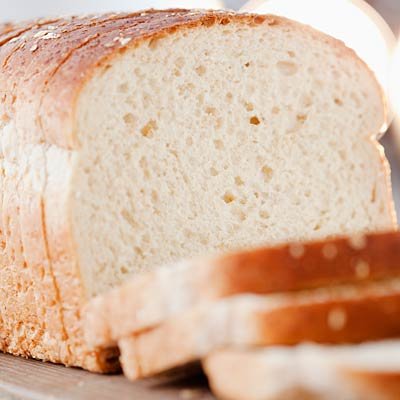8 Weight Loss Tips For Women Over 40

In my previous article, I wrote about how, for women over 40, the usual methods of crash-dieting and exercise are not effective, and that weight loss needs to be focused on changing behavior and habits.
In this article, I want to share some practical tips for how to lose weight for women over 40. My advice boils down to doing what suits you and doing what you're most likely to stick with for the long-term. Rather than replace your entire diet with a new one, the ideal approach is to take your existing diet and make small changes.
So here are 8 weight loss tips for women over 40:
1. Don't overwhelm yourself! Set super small goals.
The thing I notice especially with women whose weight loss target is anything over 30 pounds, is that they often feel overwhelmed by the task at hand. And that's not surprising. Let’s say you need to lose 70 pounds. That can be very intimidating. And it means that even if you lose 10 pounds, it doesn't feel significant because you feel like you still have so far to go. It’s very easy to feel hopeless under these circumstances and then give up.
The solution? Set an initial goal. Ten pounds is a perfect goal to start. Once you've reached it, move on to the next 10 pounds. Avoid overwhelm as much as possible.
2. Start with baby steps.
For many of my clients, they have faced years, sometimes decades, of failing to lose weight. Their confidence is at an all-time low, and they start new weight loss programs fully expecting to fail.
To rebuild your confidence, the best thing to do is get some small successes under your belt. When losing weight, most people make the mistake of trying to do too much too soon. Instead, start small. Think of the tiniest way you can begin. Maybe it's cutting back portions by a small amount. Or going for a short walk at lunchtime. Start with these baby steps and you can build up to bigger actions over time.
3. Write down everything you eat, but make it VERY simple.
Most people know the value of keeping a food diary. People who keep a food diary are more likely to lose weight than those who don’t. But don’t make it too difficult. I see many people who have very complicated food diaries that require 20 minutes a day to complete.
If you're OK with spending 20 minutes a day on your food diary, that’s fine. But for most people, it’s too onerous, and as soon as they get busy, it’s the first thing that they stop doing. The most basic food diary that does the job is just to write the time of day, and the food or drink that you had. Some of my clients come to appointments with their food diary scrawled on crumpled pieces of paper, and that’s fine. All I need is a record of what they've eaten.
4. Understand your eating.
An important part of long-term weight maintenance is getting to know more about your food preferences. You probably think you already know what you like and don’t like, when it comes to food. But do you really?
When I speak to most people, they really don’t know how much they need to eat to feel satisfied. Their portions are often driven by habit (“I’ve always served myself that much”) or environment (“That’s how much was in the packet”).
They’re also less clear on which foods make them feel more satisfied.
Start becoming aware of the foods and amounts you need to feel satisfied.
For instance, for lunch, which food and how much of it do you need to feel satisfied and keep you going for the rest of the afternoon? You can really only find out by trial and error. And what works for someone else might not work for you. Try different options, and notice if it makes a difference.
5. Don't let your surroundings affect you.
We're all surrounded by food in ways that we can't control. So as much as you can, you need to take control of your food environment. If you have tempting snacks lying around at home or at work, get rid of them.
Do an audit of your personal surroundings. If food is sitting there in front of you, it increases your chances of eating it. Don't be a victim to food just because it was there.
6. Be aware of the calorie content of foods that you eat.
This is quite different from counting calories, which is totaling up the amount of calories for the day. Imagine that you have a slice of cake every afternoon at your local café. One day, the café decides to put the calorie content of every food on their menu.
When you see how many calories are in the cake, you almost fall over: 500 calories. That's a meal's worth of calories in a snack! If you eat things without knowing their calories content, you could be in for many surprises like this.
7. Go easy on yourself.
How many times have you started a diet, had a “bad” day where you overate, felt bad about it and then given up? This stems from the fact that most diets give you a regime to follow, and make you feel that unless you’re following it perfectly, you’re cheating or failing.
Go easy on yourself. Mistakes happen. It’s part of learning a new way of life. But by the same token, don’t compound the mistake by sweeping it under the carpet. You have to learn from your mistakes or you will keep repeating them. Look at what went wrong and try and minimize the chance of it happening again.
8. Stop trying to time weight loss.
I often catch clients saying to me “I'm hoping to be [for example] 170 pounds by our next appointment.”
Have you ever done this? Aimed to be a particular weight by a particular day? If so, stop it! You have no control over your exact weight on a particular day. Weight fluctuates for many reasons. Don't set yourself up for disappointment. Focus on doing the right things (changing your behavior) and the weight will take care of itself.
Photo Credit: Veer.com
-
Losing Weight: Discover the Science of Losing Weight
Are you committed to losing weight and keeping it off? Then, it is
-
Have The Courage To Lose Weight
The famous Greek philosopher Aristotle once said You will never do any
-
Weight Loss Raleigh NC Best Weight Loss Raleigh NC
Weight Loss - Concepts You Need to Know
-
4 Ways Quick To Shed Those Pounds!
It is now generally known that an overweight person runs a high risk o
-
What You Should Know: The Risks and Rewards of Bariatric Surgery
The National Center for Health Statistics report that 30% of adults (o
-
Raw Food Diet Plan For A Healthier Body
If you are one of those who want to lose weight but do not want t
- DON'T MISS
- The medications that could be harming your hearing
- These Are The Best Carbs For Getting Leaner And Stronger
- Best Weight Loss Tips - Different Ways To Lose Weight Fast
- Low Calorie Diet The Natural Way
- Five Ways To Kill The Fat Monster
- 17 Ways to Burn More Calories All Day
- Raw Food Diet Plan For A Healthier Body
- Acupuncture & Weight Loss
- Best Weight Loss Tips
- Fat Burning And Dieting Plan




